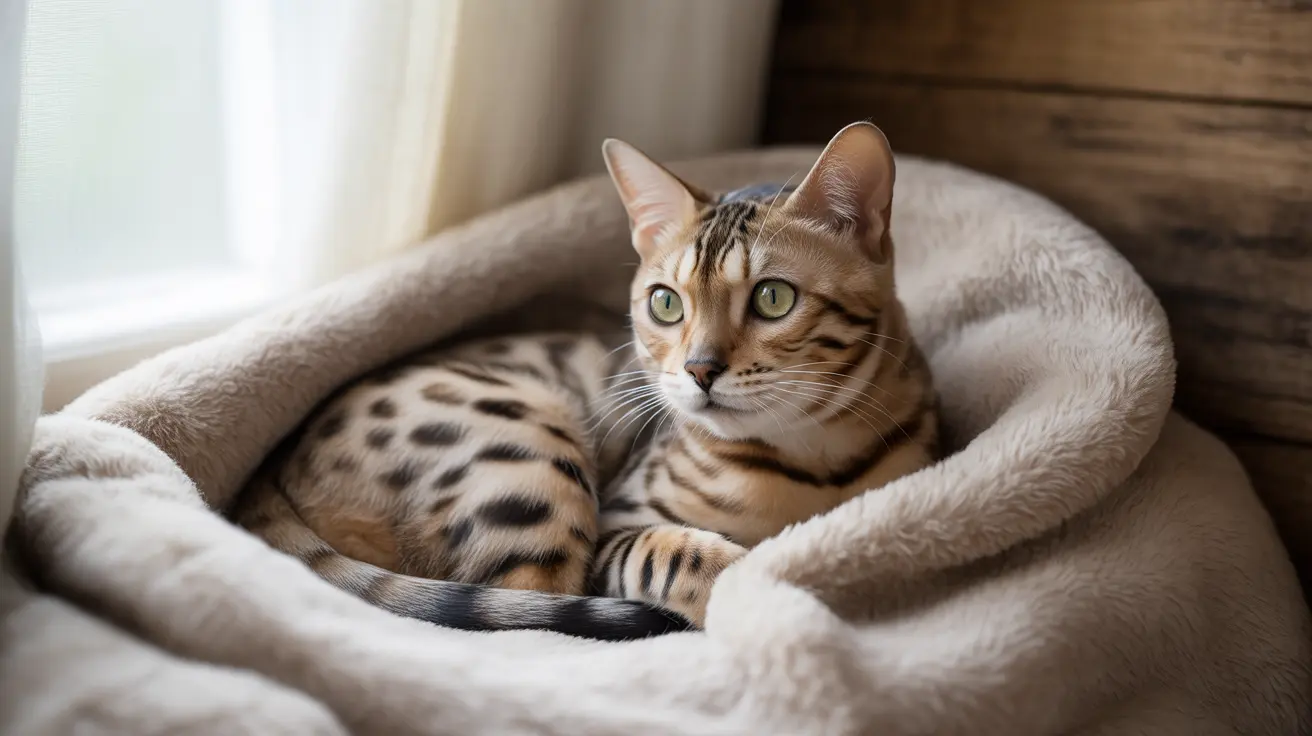When you notice your cat shivering, it's natural to feel concerned. While some causes of cat shivering are harmless, others can signal serious health issues that require immediate veterinary attention. Understanding why cats shiver and recognizing when it's a cause for concern can help you make informed decisions about your pet's health.
In this comprehensive guide, we'll explore the various reasons behind cat shivering, from simple environmental factors to potentially serious medical conditions. We'll also provide clear guidance on when to seek veterinary care and how to help your shivering cat at home.
Common Causes of Cat Shivering
Temperature-Related Shivering
The most straightforward cause of cat shivering is temperature regulation. Cats maintain a normal body temperature between 100.5°F and 102.5°F. When their temperature drops below this range, they may shiver to generate heat. This can occur due to exposure to cold environments, wet fur, or underlying health conditions that affect temperature regulation.
Stress and Anxiety
Cats often shiver in response to emotional distress. Common triggers include unfamiliar environments, loud noises, new pets, or changes in routine. This type of shivering typically resolves once the stressor is removed or the cat feels safe again.
Medical Conditions That Cause Shivering
Pain and Discomfort
Cats may shiver when experiencing pain from injuries, arthritis, dental problems, or internal issues. Since cats naturally hide signs of pain, shivering might be one of the few visible indicators that something is wrong.
Neurological Issues
Various neurological conditions can cause tremors or shaking, including:
- Feline hyperesthesia syndrome
- Seizure disorders
- Inherited tremor conditions
- Brain or spinal cord problems
Metabolic Problems
Several metabolic issues can trigger shivering:
- Hypoglycemia (low blood sugar)
- Kidney disease
- Liver problems
- Electrolyte imbalances
- Hormonal disorders
Emergency Signs to Watch For
Some forms of shivering require immediate veterinary attention, particularly when accompanied by:
- Lethargy or weakness
- Loss of appetite
- Difficulty walking
- Vomiting or diarrhea
- Mental confusion
- Fever or extremely low body temperature
Prevention and Home Care
While you can't prevent all causes of shivering, you can take steps to protect your cat:
- Maintain a warm, comfortable environment
- Provide regular meals to prevent hypoglycemia
- Minimize environmental stressors
- Keep toxic substances out of reach
- Schedule regular veterinary check-ups
Frequently Asked Questions
Why is my cat shivering and how do I know if it's due to cold or something more serious?
If your cat is shivering due to cold, warming them up should resolve the issue quickly. However, if the shivering continues despite being in a warm environment, or if it's accompanied by other symptoms like lethargy or loss of appetite, it likely indicates a more serious condition requiring veterinary attention.
What medical conditions can cause my cat to tremble or shake frequently?
Several medical conditions can cause trembling, including hypoglycemia, neurological disorders, pain, kidney disease, and hormonal imbalances. Persistent trembling should always be evaluated by a veterinarian to determine the underlying cause.
How can I tell if my cat's shaking is caused by pain or anxiety?
Anxiety-related shaking typically occurs in response to specific triggers and improves when the cat feels safe. Pain-related shaking may be accompanied by other signs like reduced activity, changes in appetite, or reluctance to be touched in certain areas.
When should I take my shivering cat to the veterinarian for emergency care?
Seek immediate veterinary care if shivering is accompanied by:
- Difficulty breathing
- Collapse or weakness
- Seizures
- Extreme lethargy
- Signs of pain
- Significant behavior changes
How can I help prevent my cat from shivering due to low body temperature or hypoglycemia?
Maintain a warm home environment, provide regular meals, and ensure your cat has access to comfortable resting spots. For cats prone to hypoglycemia, work with your veterinarian to establish an appropriate feeding schedule and monitor blood sugar levels as recommended.
Remember, while occasional shivering might be normal, persistent or severe shaking should always be evaluated by a veterinarian to ensure your cat's health and well-being.






